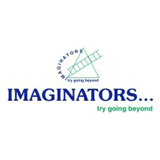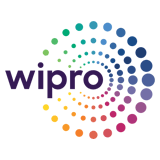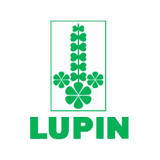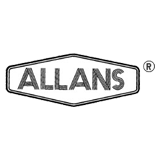Role & responsibilities
(a) To drive business unit reliability program following the DP World Reliability Framework five pillars in line with group policy and procedures. To identify opportunities to improve equipment reliability and to implement those changes through failure analysis, data collection, and identification of changes to maintenance, operations, purchasing, and design practices.
(b) Provide support to Business Unit, to continuously improve Terminal/CFS activities and make them more efficient, cost effective and customer-centric by successful implementation of lean problem-solving capabilities, process standardization, improvement initiatives, including the development of new ways to collaborate more effectively and efficiently
Key responsibilities
1. Preventive Maintenance Planning
- Develop and implement preventive and predictive maintenance schedules for critical equipment to minimize unplanned downtime and increase system reliability.
2. Data Analysis and Performance Monitoring
- Monitor and analyze equipment performance data, utilizing tools such as vibration analysis, thermography, and other diagnostic methods.
- Track key performance indicators (KPIs) to assess the efficiency, reliability, and performance of equipment and systems. Make recommendations and ensure alignment of reliability strategies in order to maintain asset related maintenance
Work Management
- Spares part management
- Maintenance and repair cost optimization
3. Root Cause Analysis and Troubleshooting
- Lead root cause analysis (RCA) investigations for equipment failures, identifying underlying issues and recommending corrective actions.
- Review quality of RCA and coach the team.
- Troubleshoot complex mechanical and electrical systems to restore equipment to optimal working conditions quickly.
Equipment Condition and Performance
- Condition based maintenance and asset health
- Equipment acceptance test using PdM Technology
Excellence & Leadership
- Reliability culture and competency development
- Lesson learnt and best practice sharing
Digital Transformation
4. Reliability Engineering Practices
- Apply Reliability Centered Maintenance (RCM), Failure Mode and Effects Analysis (FMEA), and other reliability engineering methodologies to improve system performance.
- Implement reliability improvements to extend the lifespan of equipment and reduce lifecycle costs.
- Maintenance strategy optimization.
- Asset and component criticality
- Defect identification and elimination
- Root cause analysis and FRACAS
- Weibull and growth analysis
- Reliability, Availability and Maintainability (RAM) analysis
5. Collaboration with Cross-Functional Teams
- Work closely with operations, engineering, and HSE teams to identify potential improvements and support the efficient operation of equipment.
- Collaborate with vendors and contractors on equipment upgrades or new installations, ensuring compliance with reliability standards.
6. Continuous Improvement Initiatives
- Participate in continuous improvement initiatives aimed at optimizing maintenance procedures, reducing downtime, and improving overall terminal and CFS performance.
- Develop and recommend changes to maintenance procedures to improve reliability, safety, and efficiency.
7. Process Analysis and Mapping
- Conduct thorough assessments of current processes across various departments or business functions.
- Map out workflows and identify inefficiencies, bottlenecks, and areas for improvement.
- Use tools like Value Stream Mapping (VSM) and process flowcharts to visualize and assess current-state processes.
8. LEAN Methodology Implementation
- Driving cultural change and embedding lean principles into leadership frameworks, shaping long-term operational strategies to foster a culture of continuous improvement.
- Positively coach, influence and actively manage leadership behavioral change according to the principles and practices developed in the Lean Business System (LBS) program
- Coordinate and drive the local implementation of the LBS elements, including Process Standardization, Daily Management, Lean Academy and Problem Solving/ Improvement activities (Kaizens)
- Take ownership of local implementation activities using defined tools and methodologies where applicable and ensure ongoing coordination of local resources involved in corporation with the BU management.
- Collaborating with regional and global leadership teams to align LBS strategies with business objectives.
- Influencing C-level leaders to ensure long-term integration of lean principles into organizational culture
- Accountable for achieving significant performance improvements, operational excellence, and financial results, and ensuring the delivery of impactful, sustainable results through the LBS program
- Ensure the sustainable implementation of improvements from Daily Management and Strategic Kaizen activities
- Develop and execute a multi-year strategic roadmap to mature LBS initiatives and ensure sustainable improvements.
- Leverage data-driven insights to track performance, optimize operations, and guide continuous improvement initiatives, and foster innovation in lean methodologies to ensure the business is future-proofed
- Lead the implementation of LEAN principles, such as Kaizen, 5S, Six Sigma, and Standardized Work, to improve productivity, reduce waste, and enhance process efficiency.
- Train and coach teams on LEAN tools and concepts to foster a culture of continuous improvement.
9. Continuous Improvement Projects
- Lead and manage process improvement projects aimed at optimizing operational efficiency, reducing costs, and enhancing product/service quality.
- Apply root cause analysis (RCA) to address recurring issues and develop sustainable solutions.
- Oversee the implementation of best practices, ensuring that process improvements are integrated into everyday operations.
10. Data-Driven Decision Making
- Collect and analyze performance data, metrics, and KPIs to identify areas of opportunity for improvement.
- Use data to drive decision-making and justify process changes and improvements.
- Develop dashboards and reports to monitor the success of improvement initiatives and track progress.
11. Safety and Compliance
- Ensure that all maintenance activities comply with safety regulations, industry standards, and company policies.
- Support the development of safety protocols and promote a culture of safety within the maintenance team.
12. Documentation and Reporting
- Maintain accurate records of maintenance activities, performance data, and any issues or failures for tracking and analysis.
- Generate reports for management to highlight equipment performance trends, reliability improvements, and areas for further optimization.
13. Training and Development
- Train maintenance staff on best practices, new technologies, and reliability-centered maintenance techniques.
- Stay up-to-date with the latest industry developments and technologies to continuously improve maintenance strategies.
QUALIFICATIONS & COMPETENCIES
Bachelors degree in engineering, Industrial Engineering, or related field. Masters degree preferred.
- 10+ years of experience in engineering, with a strong background in reliability engineering and lean project management.
- Knowledge of condition-based maintenance techniques
- Certified Reliability Leader (CRL) or Certified Maintenance & Reliability Professional (CMRP)
- Working knowledge of Maximo work order process
- Experience with different ISO standards and other relevant codes and standards.
- Proven experience in leading complex engineering projects and driving continuous improvement initiatives.
- Expertise in reliability methodologies, such as FMEA, root cause analysis, and predictive maintenance.
- Strong understanding of lean principles, including Six Sigma, Kaizen, 5S, and value stream mapping.
- Exceptional leadership and team management skills, with a proven ability to motivate and guide cross-functional teams.
- Excellent analytical, problem-solving, and decision-making skills.
- Strong communication and interpersonal skills, with the ability to engage and influence stakeholders at all levels of the organization.
- Project management experience with proficiency in project management tools and techniques (e.g., Agile, Waterfall).
- PMP, Lean Six Sigma Black Belt, or equivalent certifications are a plus.
- Graduate in Engineering (Mechanical / Electrical & Electronics) or a Class One Marine Engineer. MBA is added advantage
- CRL, CMRP, PMP, Lean Six Sigma Black Belt, or equivalent certifications
- Range/ Min no of years - of overall Experience required:10 Years
Shipping Lines, Ports and Terminals, Logistics
















